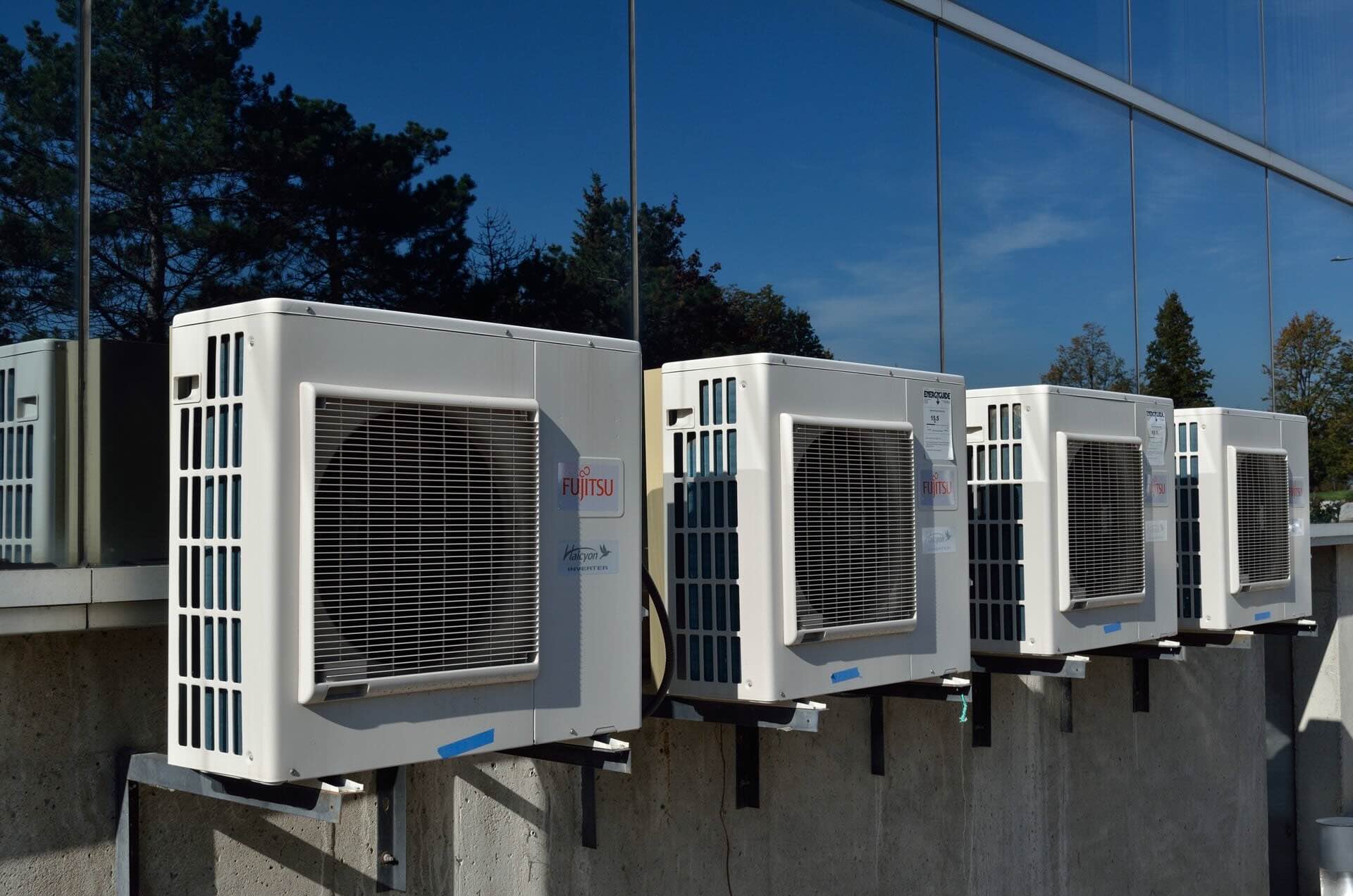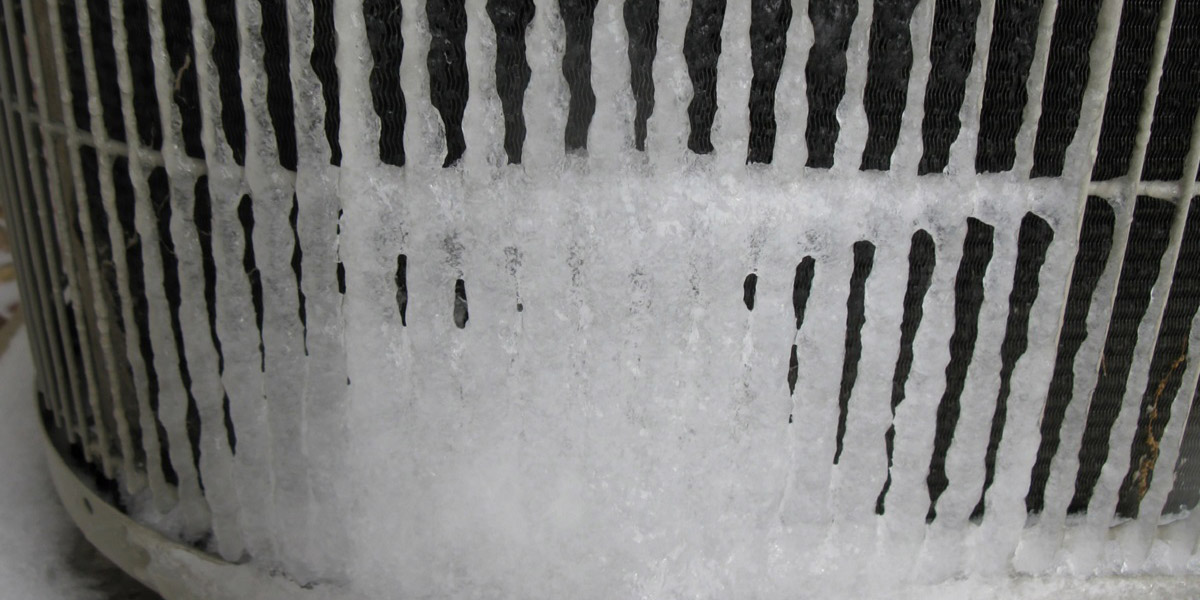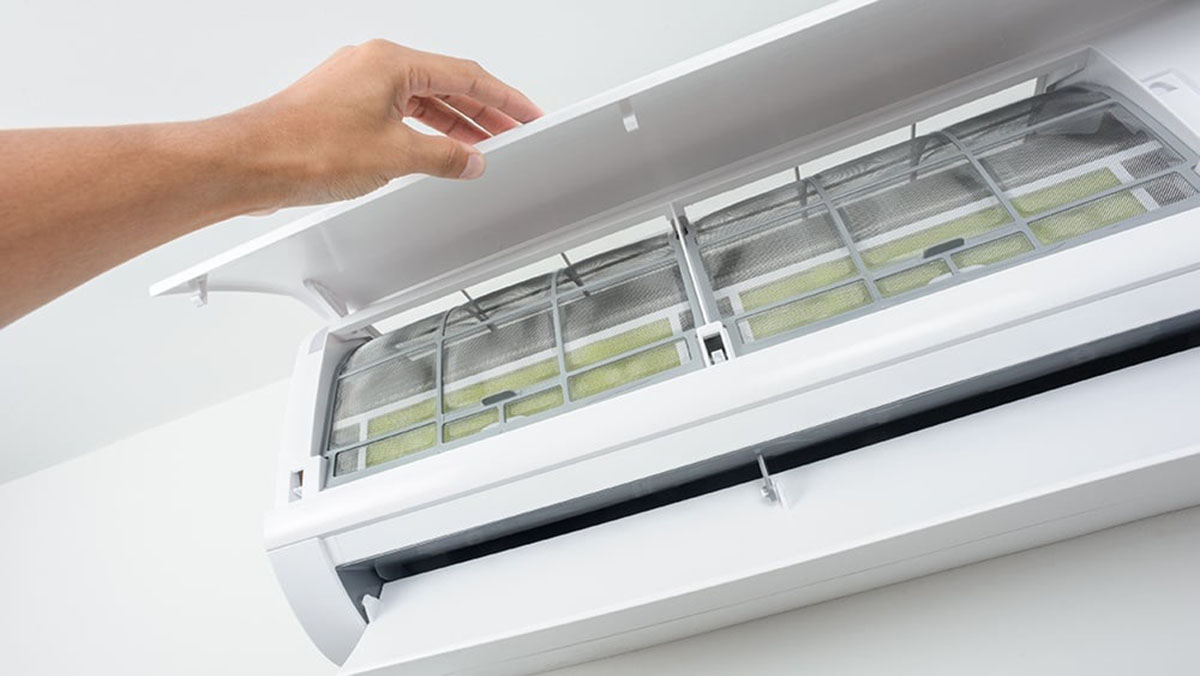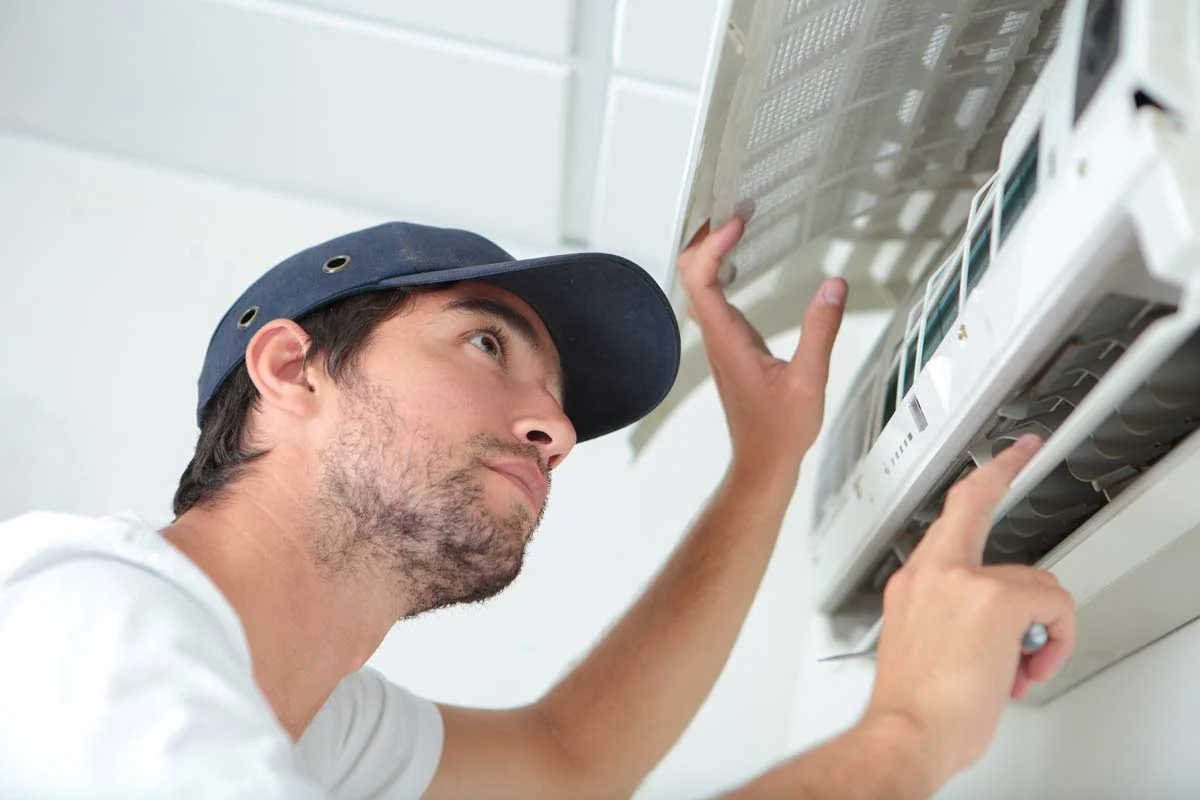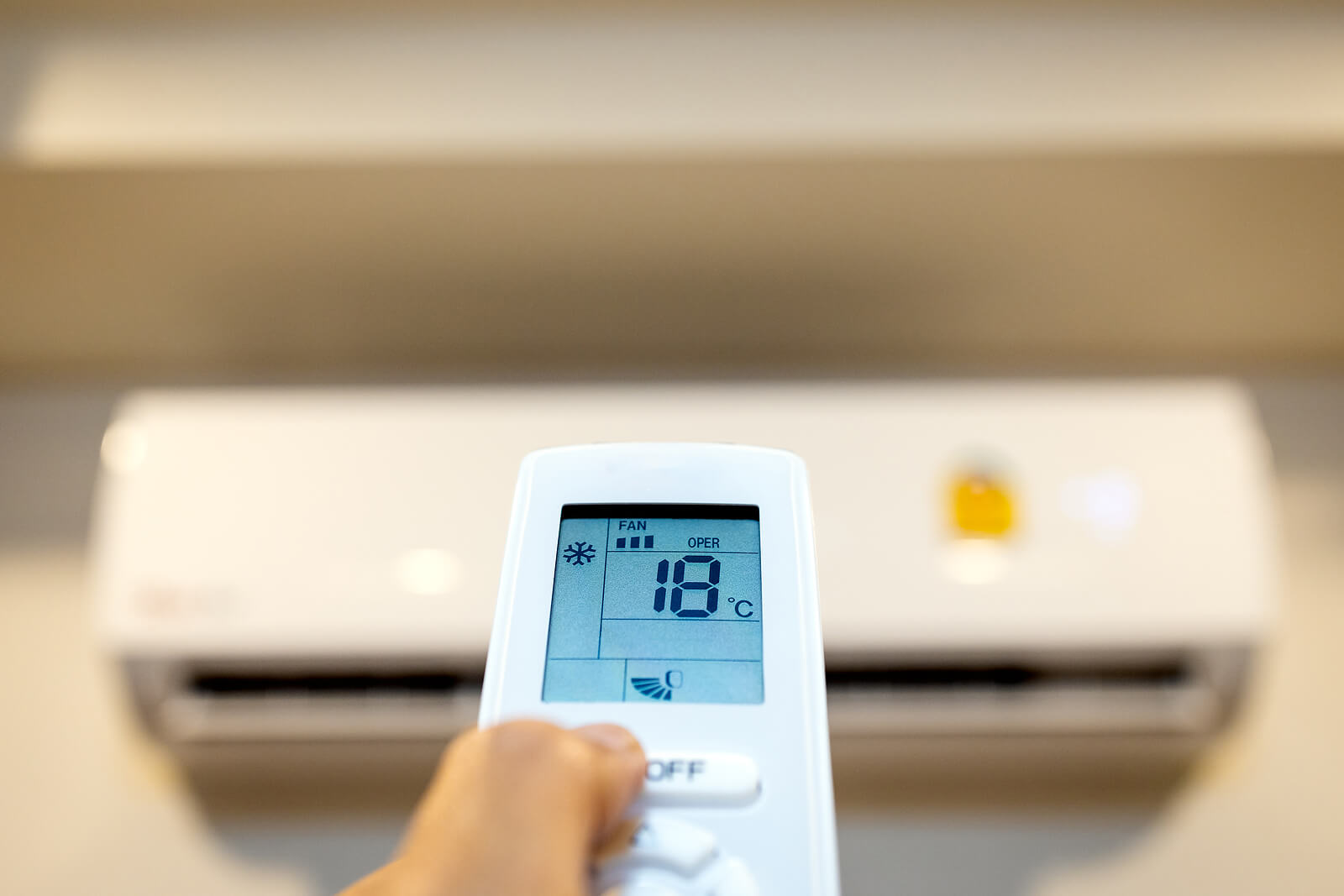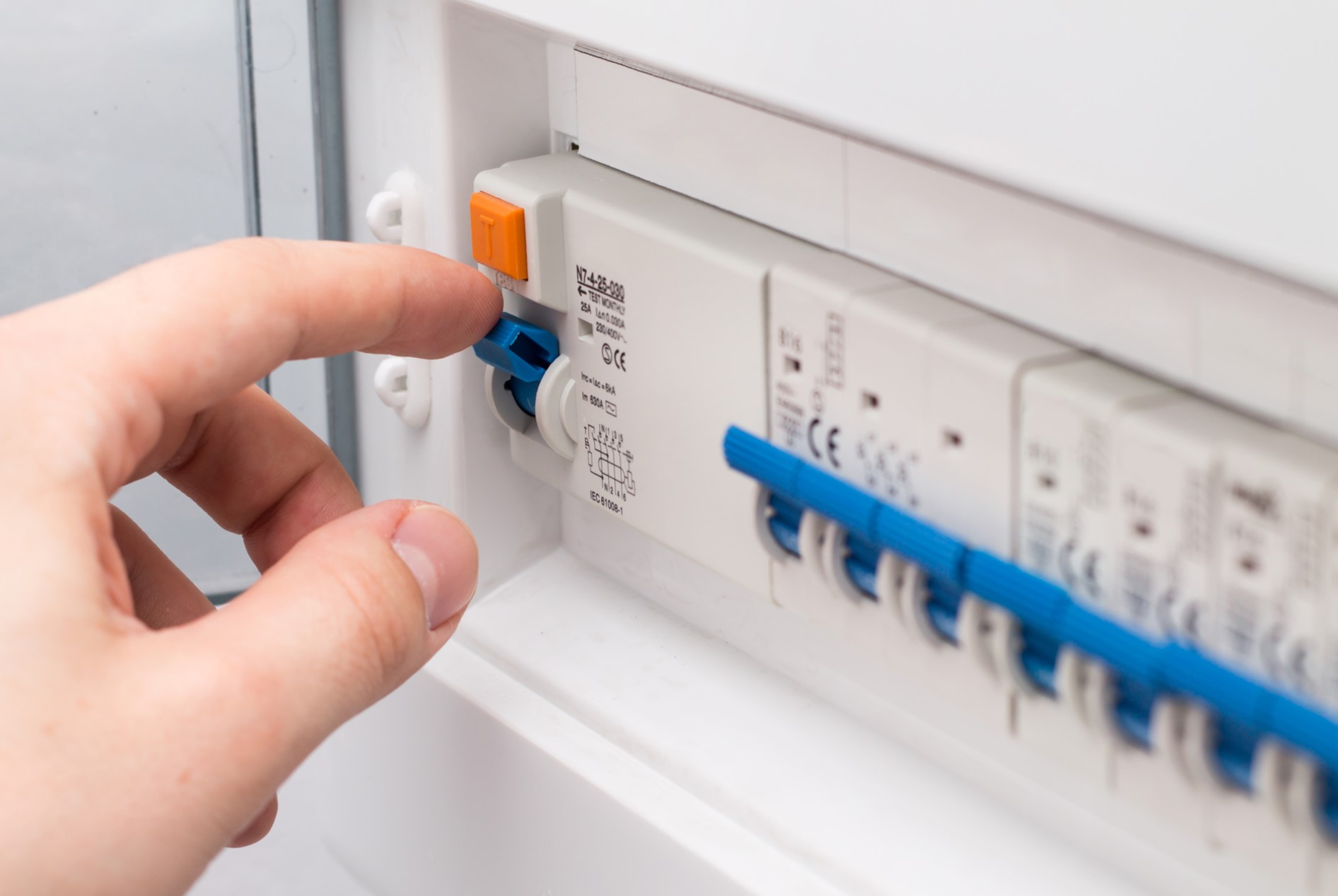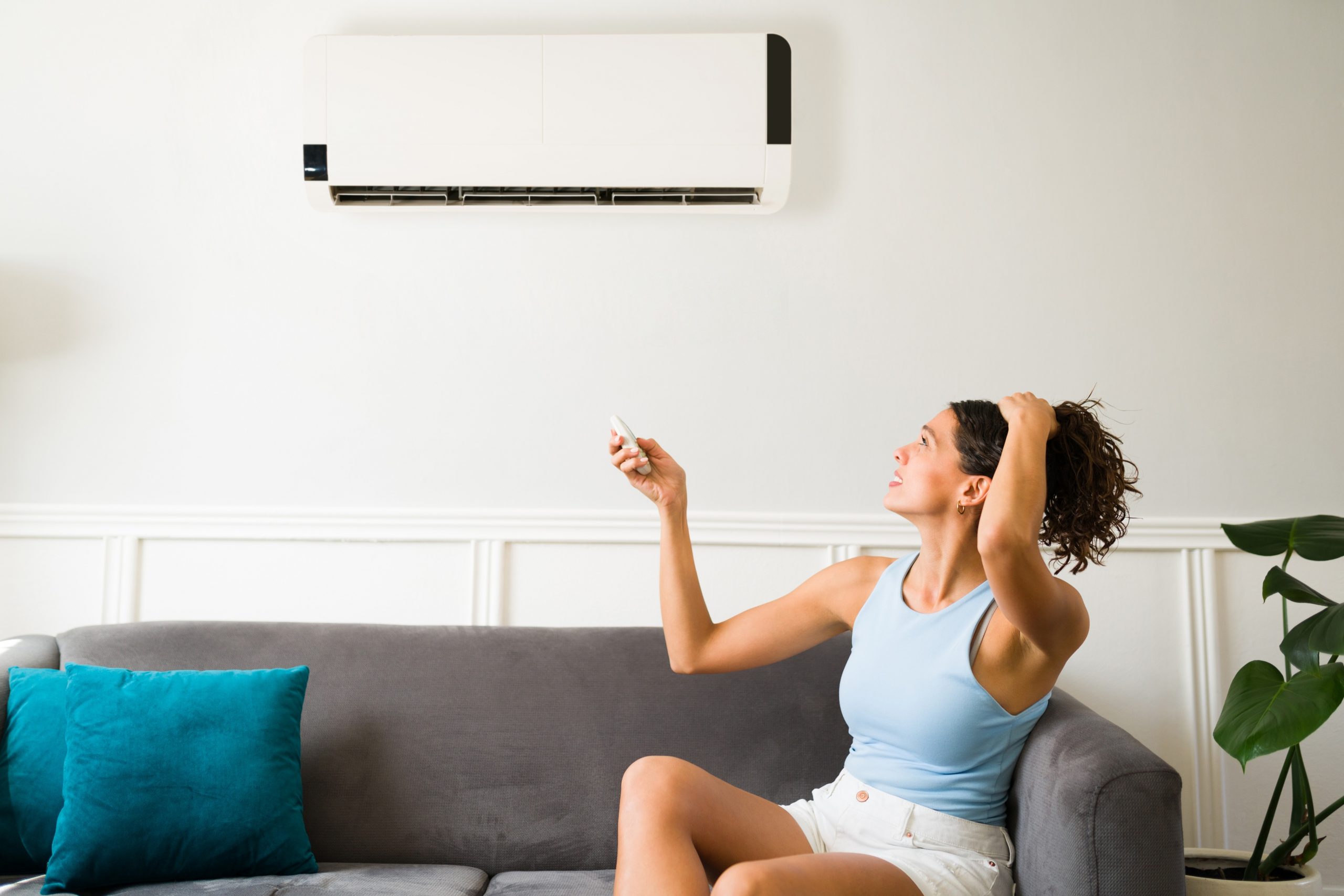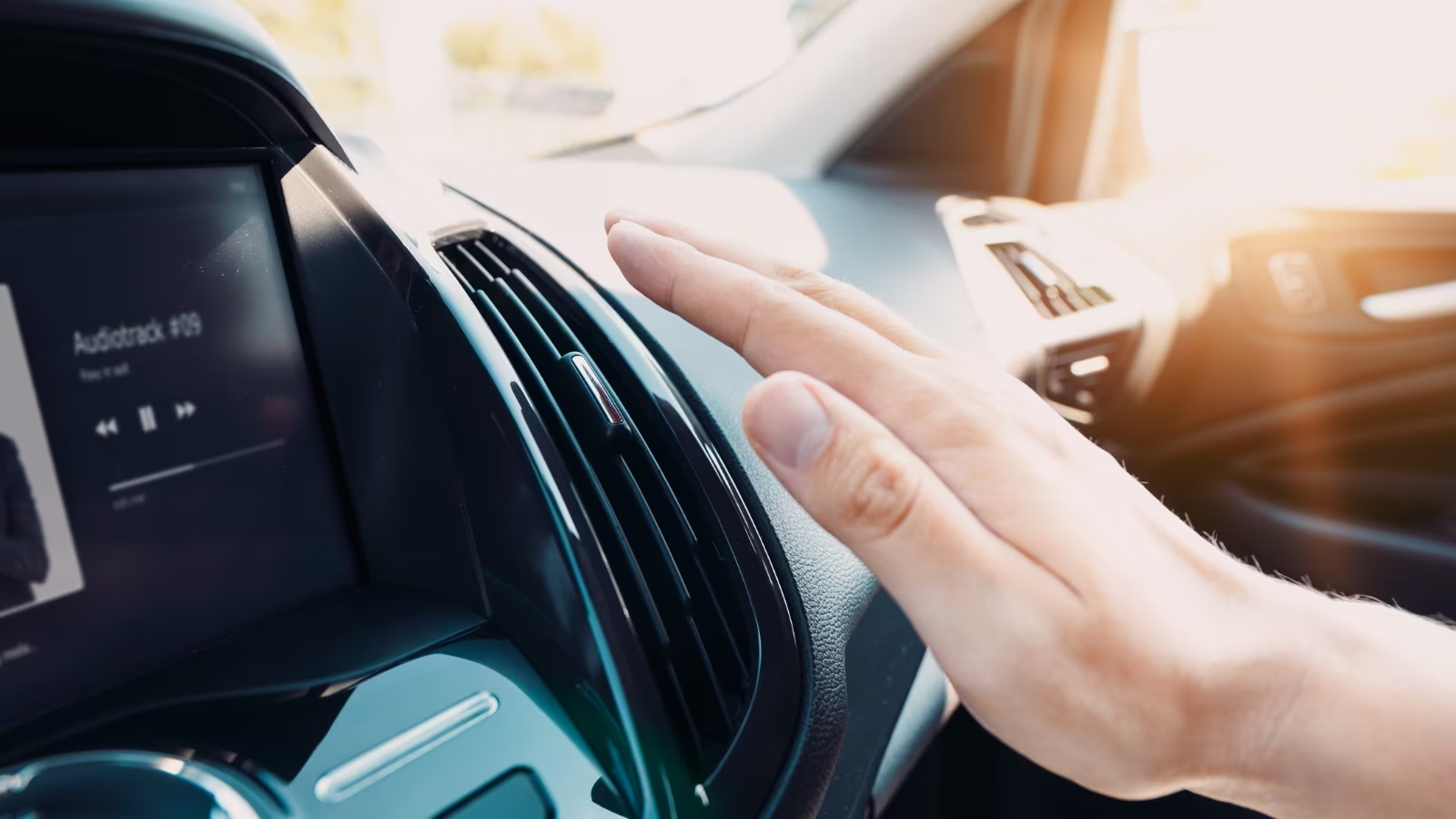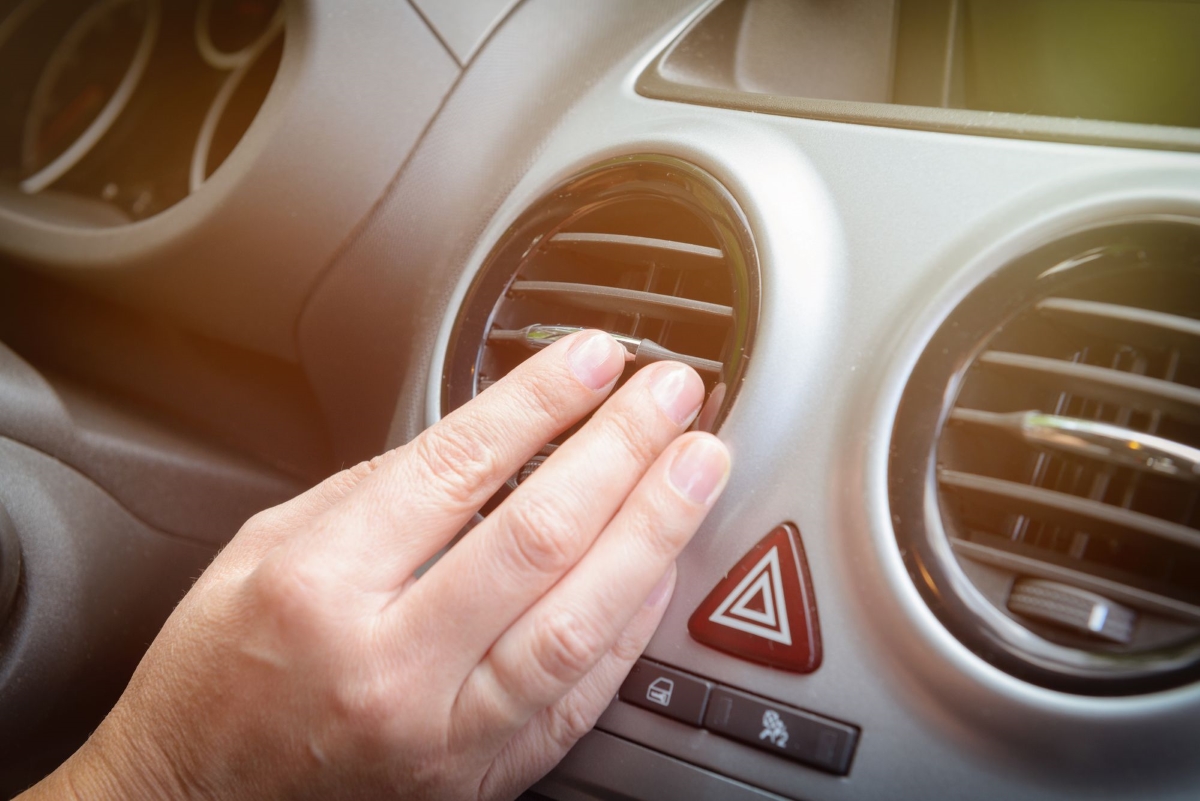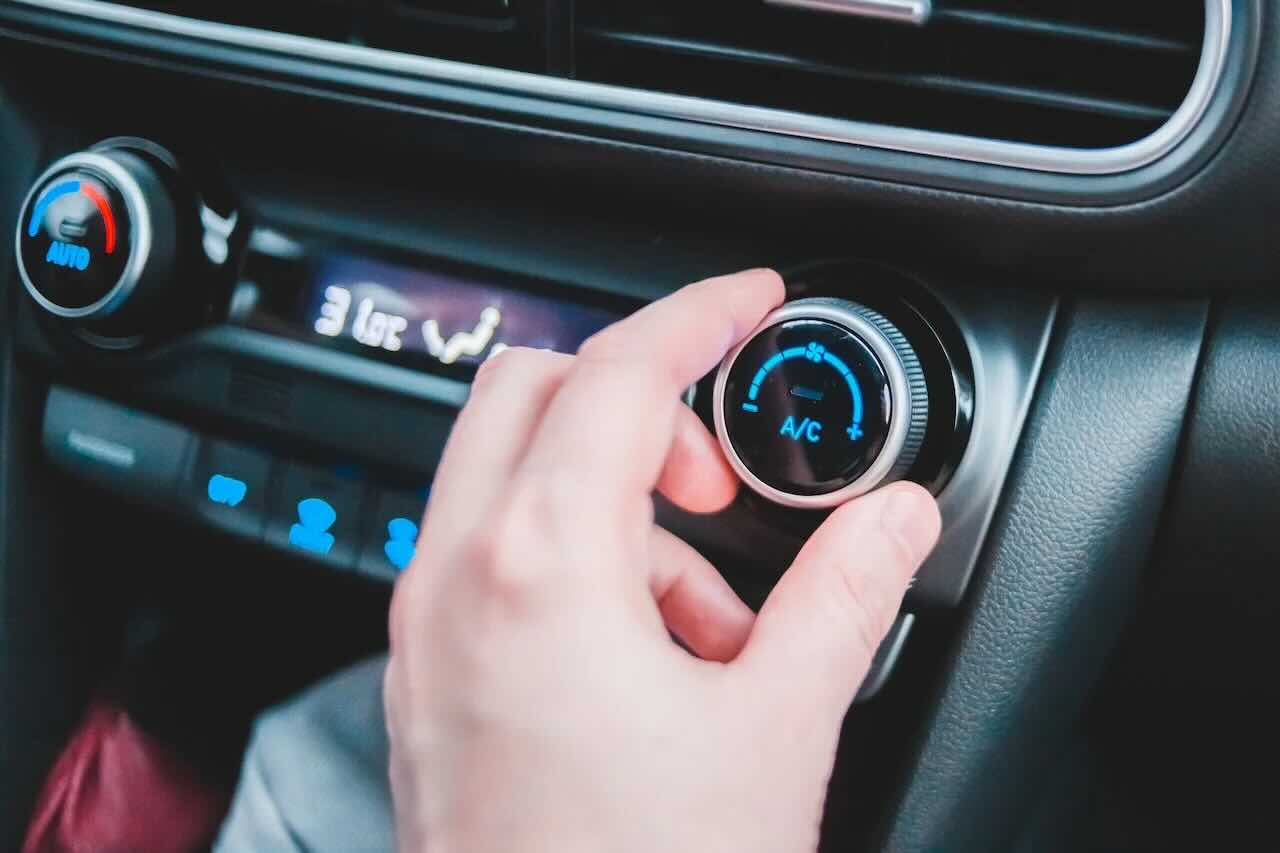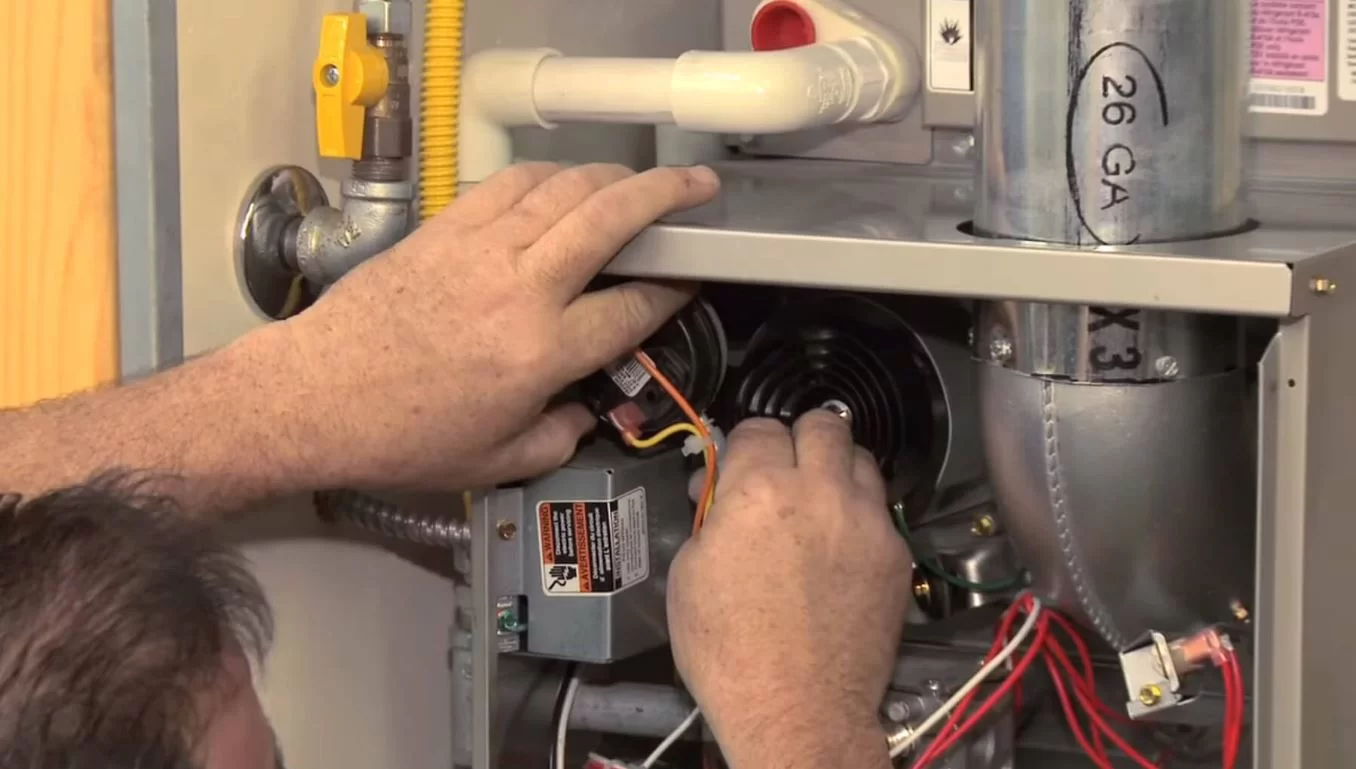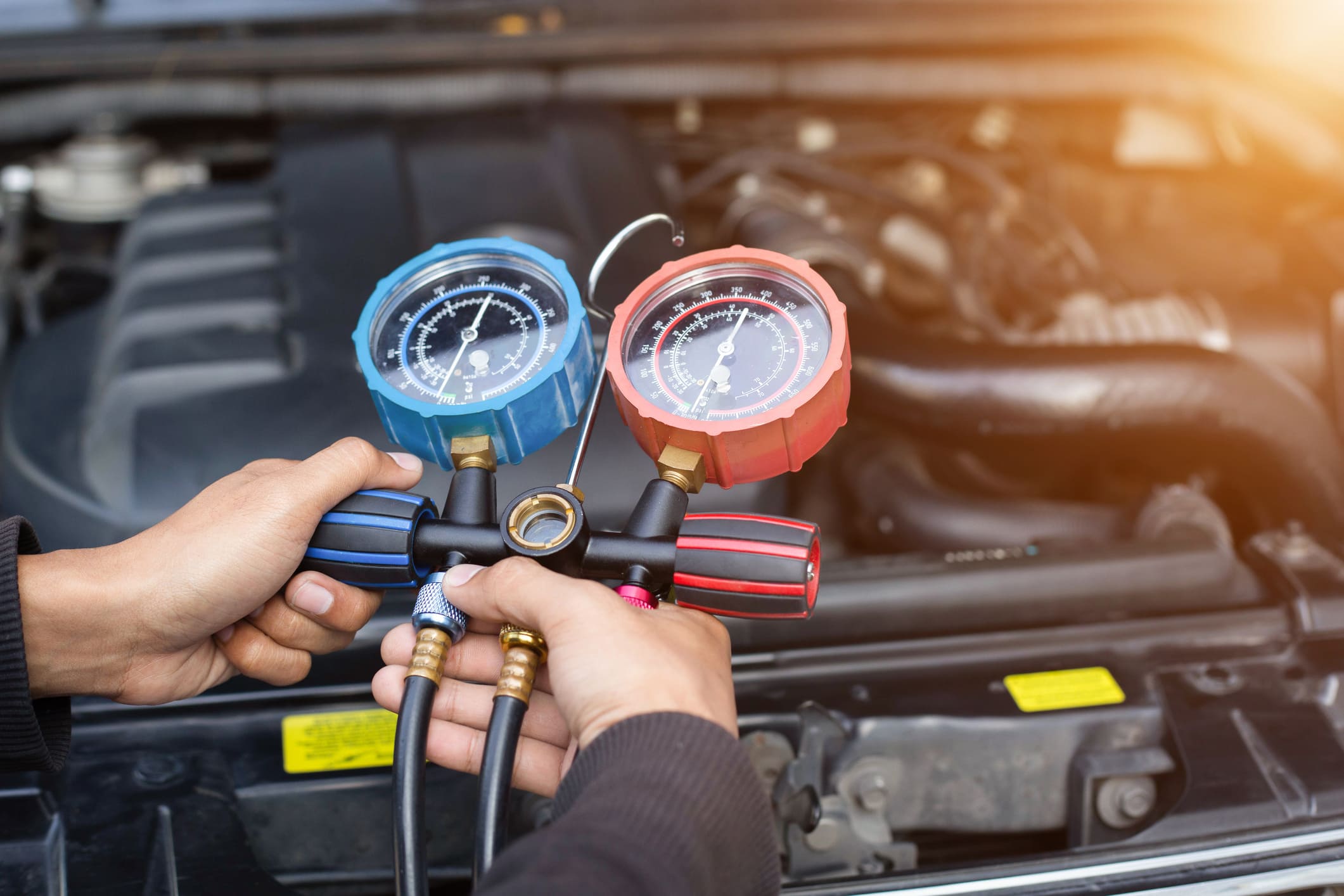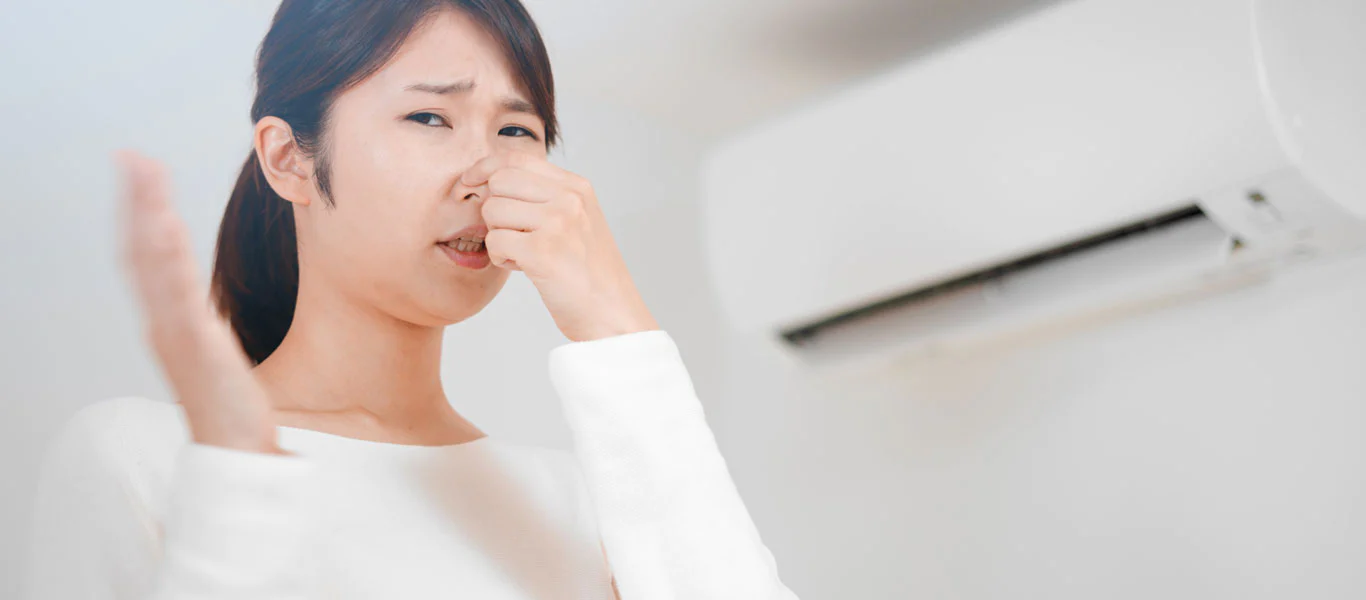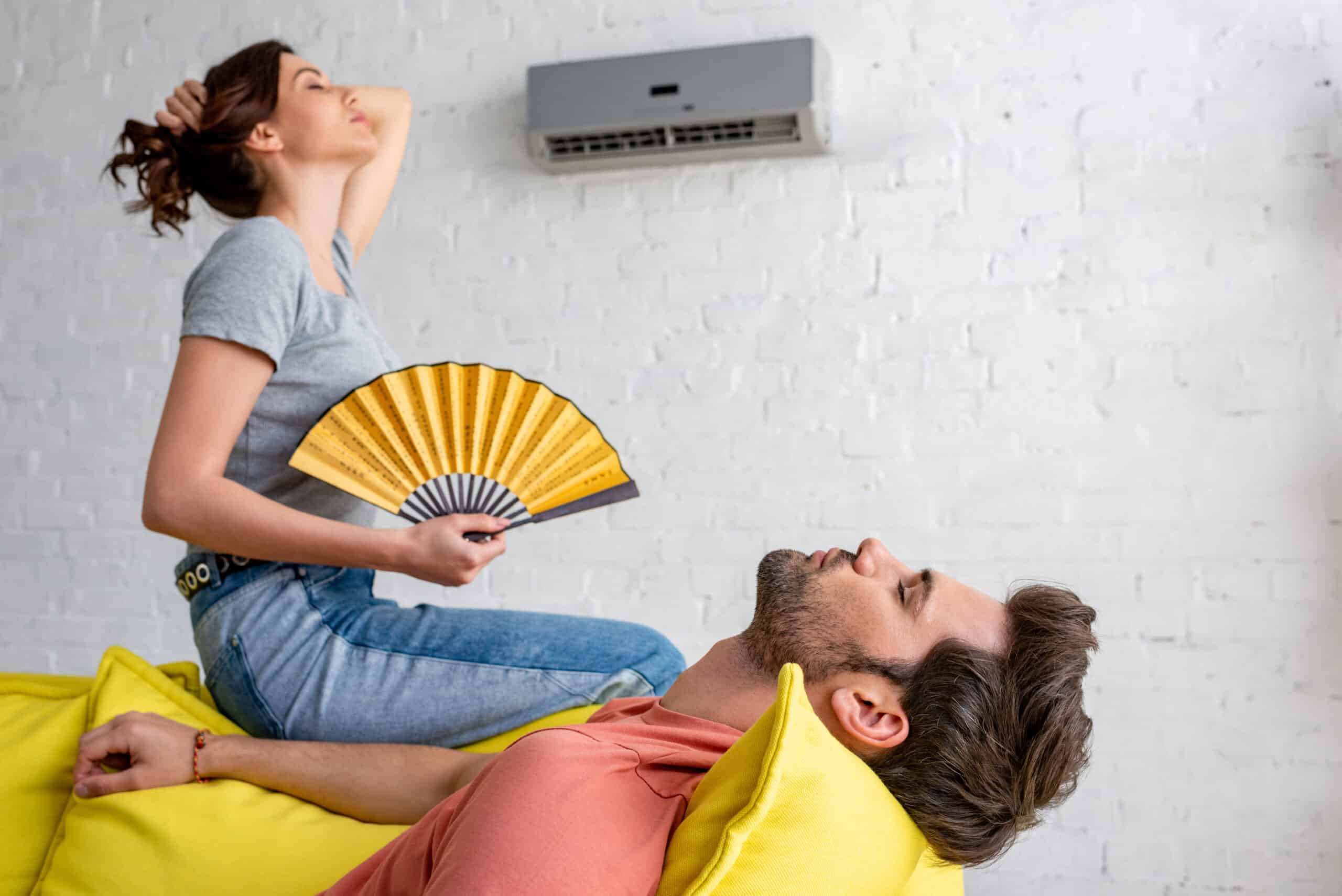Home>Home Maintenance>Why Does My Car Air Conditioner Blow Hot Air
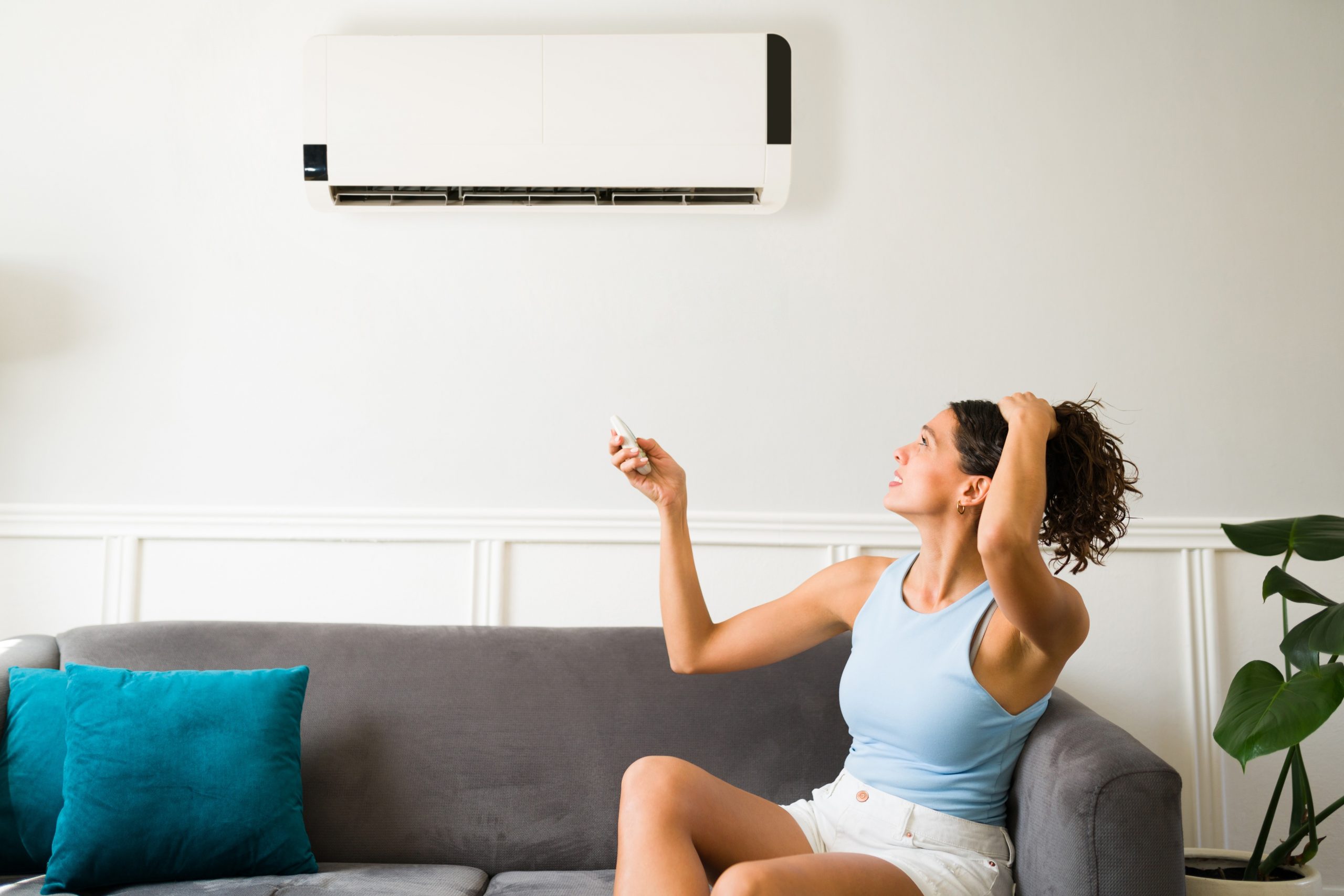

Home Maintenance
Why Does My Car Air Conditioner Blow Hot Air
Modified: August 23, 2024
Learn why your car air conditioner is blowing hot air and discover tips for home maintenance to keep it running cool.
(Many of the links in this article redirect to a specific reviewed product. Your purchase of these products through affiliate links helps to generate commission for Storables.com, at no extra cost. Learn more)
Introduction
There’s nothing quite as frustrating as turning on your car’s air conditioner on a scorching summer day, only to be met with a blast of hot air instead of much-needed coolness. The car air conditioner is a crucial component for maintaining a comfortable driving experience, especially during the hot months. Understanding the common causes of hot air blowing from your car’s air conditioner can help you diagnose and fix the issue in a timely manner.
Several factors can contribute to hot air coming from your car’s air conditioner, ranging from simple maintenance issues to more complex mechanical failures. By becoming familiar with the signs and symptoms, as well as the steps to diagnose and fix the problem, you can ensure that your car’s air conditioner will provide the cool relief you desire.
In this article, we will discuss the common causes of hot air blowing from your car’s air conditioner, the signs and symptoms to look out for, and the steps to diagnose and fix the issue. Additionally, we will explore additional factors to consider for optimal car air conditioner performance.
So, let’s dive in and uncover why your car’s air conditioner may be blowing hot air and how you can remedy the situation to enjoy a cool and comfortable ride.
Key Takeaways:
- Don’t suffer in the heat! Low refrigerant, faulty compressor, clogged condenser, or malfunctioning fans could be why your car’s AC blows hot air. Get it checked and fixed for a cool ride.
- Keep cool on the road! Look out for signs like lack of cooling, frequent compressor cycling, strange noises, and poor airflow. Regular maintenance and professional help can ensure a comfortable driving experience.
Read more: Why Is My Air Conditioner Not Blowing Hard
Common Causes of Hot Air from Car Air Conditioner
When your car’s air conditioner is blowing hot air instead of the cool breeze you expect, there are several common causes that could be to blame. Understanding these causes can help you pinpoint the issue and take the necessary steps to resolve it. Here are four common culprits:
- Low refrigerant levels: One of the most common causes of hot air blowing from a car’s air conditioner is low refrigerant levels. The refrigerant is responsible for absorbing heat from inside the car and releasing it outside, creating the cooling effect. If the refrigerant levels are low, the system won’t be able to produce cold air effectively. A leak in the refrigerant lines or a faulty seal can lead to low refrigerant levels.
- Faulty compressor: The compressor is the heart of the car’s air conditioning system. It pressurizes and circulates the refrigerant, playing a crucial role in cooling the air. If the compressor is faulty or not functioning properly, it will not be able to properly pressurize the refrigerant, resulting in hot air being blown out. Common compressor issues include electrical failures, clutch problems, or mechanical malfunctions.
- Clogged condenser: The condenser is responsible for releasing heat from the refrigerant, allowing it to cool down and circulate through the system. Over time, the condenser can become clogged with dirt, debris, or even bugs, obstructing the flow of air and preventing proper heat transfer. A clogged condenser can cause the air conditioner to blow hot air instead of cool air.
- Malfunctioning cooling fans: The cooling fans in your car’s air conditioning system are designed to assist in dissipating heat from the condenser. If these fans are not working properly, the condenser will not be able to release heat efficiently, leading to hot air being blown by the air conditioner. Common issues with the cooling fans include electrical faults, motor failures, or blocked airflow.
If you suspect any of these common causes to be the reason why your car’s air conditioner is blowing hot air, it is important to address the issue promptly. Taking appropriate steps to diagnose and fix the problem can help restore the coolness and comfort to your driving experience. In the following sections, we will explore the signs and symptoms of a hot air conditioner and the steps to diagnose and fix the issue.
Signs and Symptoms of a Hot Air Conditioner
Identifying the signs and symptoms of a hot air conditioner can help you determine if your car’s air conditioning system is not functioning properly. Here are four common signs to watch out for:
- Lack of cooling: The most obvious sign of a hot air conditioner is when it fails to provide the cooling effect you expect. Instead of feeling a refreshing blast of cold air, you may notice that the air coming from the vents is warm or even hot.
- Frequent cycling of the compressor: If the compressor is constantly turning on and off, it could be a sign of a problem. The compressor is designed to cycle on and off to maintain the desired temperature, but if it is cycling too frequently, it may indicate an issue with the system, resulting in hot air being blown.
- Strange noises when the AC is turned on: Unusual noises, such as rattling, squealing, or grinding sounds, when you turn on the air conditioner can be a sign of a problem. These noises could indicate issues with the compressor, fan motor, or other components, which can lead to hot air being blown from the vents.
- Poor airflow: If you notice that the airflow from the vents is weak or inconsistent, it could indicate that there is a blockage or restriction in the system. This can prevent the cold air from being distributed properly, resulting in hot air being blown from the air conditioner.
If you experience any of these signs and symptoms, it is recommended to address the issue as soon as possible. Ignoring these indicators may lead to further damage to your car’s air conditioning system and a prolonged period of discomfort while driving.
In the next sections, we will explore the steps you can take to diagnose and fix the issue of hot air blowing from your car’s air conditioner, ensuring a cool and pleasant driving experience.
Check the refrigerant levels in your car’s air conditioning system. Low refrigerant can cause the air conditioner to blow hot air. If the levels are low, have a professional inspect for leaks and recharge the system.
Steps to Diagnose and Fix the Issue
If your car’s air conditioner is blowing hot air instead of providing the expected coolness, there are several steps you can take to diagnose and fix the problem. Here are the key steps to follow:
- Checking refrigerant levels: Start by checking the refrigerant levels in your car’s air conditioning system. Low refrigerant levels can cause the air conditioner to blow hot air. If the levels are low, it is likely due to a leak in the system. Consult a professional technician to locate and repair the leak, and then recharge the refrigerant to the recommended level.
- Inspecting the compressor: The next step is to inspect the compressor. Check for any visible signs of damage or malfunction, such as oil leakage, loose connections, or damaged electrical components. If you notice any issues, it may be necessary to repair or replace the compressor to restore proper operation.
- Cleaning or replacing the condenser: A clogged condenser can prevent proper heat transfer and cause the air conditioner to blow hot air. Start by inspecting the condenser for any debris, dirt, or obstructions. If necessary, clean the condenser using compressed air or a gentle brush. In some cases, the condenser may be severely clogged or damaged, requiring replacement to ensure optimal cooling performance.
- Repairing or replacing cooling fans: Faulty or malfunctioning cooling fans can hamper the ability of the condenser to release heat properly, resulting in hot air blowing from the air conditioner. Inspect the cooling fans for any damage, electrical issues, or blockages. If the fans are not functioning correctly, they may need to be repaired or replaced to restore proper airflow and cooling.
It is important to note that diagnosing and fixing issues with a car’s air conditioning system can be complex, and it is often best to consult a professional technician for accurate diagnosis and repair. They have the knowledge, experience, and specialized tools to address air conditioning system problems effectively.
By following these steps and seeking professional assistance if needed, you can diagnose and fix the issue of hot air blowing from your car’s air conditioner, ensuring that you can enjoy a cool and comfortable ride.
Additional Factors to Consider
When it comes to diagnosing and fixing the issue of hot air blowing from your car’s air conditioner, there are a few additional factors to consider. Taking these factors into account can help optimize the performance of your air conditioning system and prevent future problems. Here are some key considerations:
- Outside temperature and humidity: It’s important to remember that extreme outside temperatures and high humidity levels can affect the cooling capacity of your car’s air conditioner. In extremely hot conditions, the air conditioner may struggle to cool the air as effectively, resulting in air that is not as cold as desired.
- AC system maintenance: Regular maintenance is crucial for the proper functioning of your car’s air conditioning system. It is recommended to have your AC system inspected and serviced by a qualified technician at least once a year. Regular maintenance can help detect and address any potential issues before they escalate and help optimize the system’s performance.
- Vents and air filters: Blocked or restricted vents, as well as dirty or clogged air filters, can hinder the airflow and reduce the cooling efficiency of the air conditioner. Make sure to regularly check and clean the vents to ensure unobstructed airflow, and replace the air filters as recommended by the car manufacturer.
By considering these additional factors, you can enhance the performance of your car’s air conditioning system and minimize the chances of experiencing hot air blowing from the vents. However, if you have followed all the necessary steps and considerations mentioned above and are still facing issues with your air conditioner, it is advisable to consult with a professional technician who can provide further assistance and expert advice.
Remember, a fully functional and efficient air conditioning system is essential for your comfort during hot summer drives, so it is worth investing time and effort into maintaining and troubleshooting your car’s air conditioner.
Conclusion
Experiencing hot air blowing from your car’s air conditioner can be frustrating, especially during the hot summer months. However, by understanding the common causes, signs, and steps to diagnose and fix the issue, you can restore the coolness and comfort to your driving experience.
Low refrigerant levels, a faulty compressor, a clogged condenser, and malfunctioning cooling fans are common culprits of hot air from a car’s air conditioner. By checking refrigerant levels, inspecting the compressor, cleaning or replacing the condenser, and repairing or replacing cooling fans, you can address these issues effectively.
It is important to pay attention to the signs and symptoms of a hot air conditioner, such as a lack of cooling, frequent compressor cycling, strange noises, and poor airflow. Promptly addressing these indicators can prevent further damage to the system and ensure a pleasant driving experience.
Additional factors to consider for optimal air conditioner performance include outside temperature and humidity, regular AC system maintenance, and the condition of vents and air filters. By keeping these factors in mind, you can enhance the performance and efficiency of your car’s air conditioning system.
Remember, it is always advisable to consult a professional technician for accurate diagnosis and repair of your car’s air conditioner. They have the expertise and specialized tools required to resolve complex issues effectively.
By taking the necessary steps and considering the crucial factors, you can diagnose and fix the issue of hot air blowing from your car’s air conditioner, ensuring a cool and comfortable ride even during the hottest days of the year.
So, don’t let hot air ruin your driving experience. Take action and enjoy the refreshing coolness of your car’s air conditioner once again.
Frequently Asked Questions about Why Does My Car Air Conditioner Blow Hot Air
Was this page helpful?
At Storables.com, we guarantee accurate and reliable information. Our content, validated by Expert Board Contributors, is crafted following stringent Editorial Policies. We're committed to providing you with well-researched, expert-backed insights for all your informational needs.
